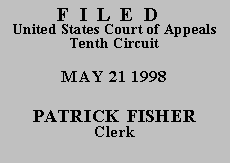

| LESLIE A. STRACHAN, |
|
Mr. Strachan's complaint is that he was sentenced to ninety days imprisonment after his probation was revoked. He contends that he was entitled to counsel, that the municipal court failed to hold a meaningful hearing, and that he was improperly placed in high risk status while imprisoned based upon erroneous information supplied by a probation officer. He also argues that he should have been granted leave to amend his complaint.
The municipal court judge is protected by immunity. See Stump v. Sparkman, 435 U.S. 349, 364 (1978). Mr. Strachan has not stated a claim for deprivation of a liberty interest based upon his confinement, see Sandin v. Conner, 515 U.S. 472, 486 (1995), nor for deprivation of counsel based upon a probation revocation, see Gagnon v. Scarpelli, 411 U.S. 778, 790 (1973). Concerning his contention that he should have been allowed to amend his complaint to allege a municipal custom or policy of disregarding the rights of indigents, Mr. Strachan filed his motion to amend well after the judgment, beyond the ten-day period permitted by Fed. R. Civ. P. 59(e), and after he filed his notice of appeal. In such circumstances, the district court did not err in not acting on the pleading. See Glenn v. First Nat'l Bank, 868 F.2d 368, 371 (10th Cir. 1989).
AFFIRMED. Mr. Strachan's motion for leave to proceed on appeal without prepayment of costs or fees is moot as the district court granted him such leave, with payments to the court of appeals to begin after the district court filing fee was satisfied. Mr. Strachan is reminded of this obligation.
Entered for the Court
Paul J. Kelly, Jr.
Circuit Judge
*. This order and judgment is not binding precedent, except under the doctrines of law of the case, res judicata, and collateral estoppel. This court generally disfavors the citation of orders and judgments; nevertheless, an order and judgment may be cited under the terms and conditions of 10th Cir. R. 36.3.
**. After examining the briefs and the appellate record, this three-judge panel has determined unanimously that oral argument would not be of material assistance in the determination of this appeal. See Fed. R. App. P. 34(a); 10th Cir. R. 34.1.9. The cause is therefore ordered submitted without oral argument.